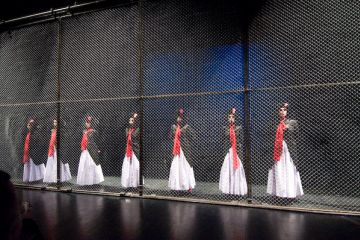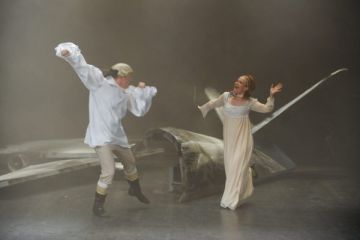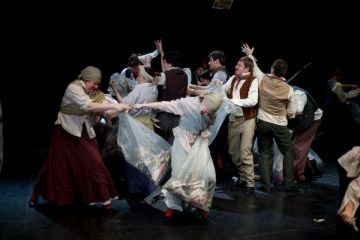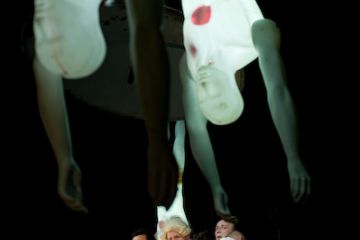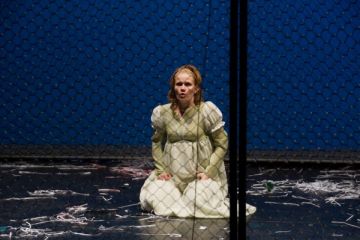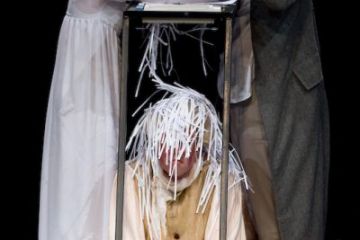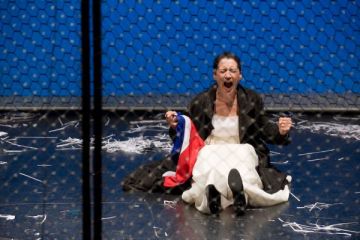Danton's Death
Studio Performance in the Main Hall
András Hatházi
Áron Dimény
Ferenc Sinkó
József Bíró
Attila Orbán
Róbert Laczkó Vass
Imola Kézdi
Enikő Györgyjakab
Miklós Bács
Ernő Galló
András Buzási
Balázs Bodolai
Lehel Salat
Levente Molnár
Lóránd Farkas
Szabolcs Balla
Ervin Szűcs
Alpár Fogarasi
Csongor Köllő
Tibor Molnár
Revolutionary Women, Erinyes:
Csilla Albert, Réka Csutak, Andrea Kali, Melinda Kántor, Anikó Pethő, Csilla Varga, Andrea Vindis
directed by
Mihai Măniuţiu
András Visky
Tibor Tenkei
Carmencita Brojboiu
István Albu
Levente Borsos
Yvonne Nagy
Imola Kerezsy
“I don’t know of any other text (except those of Shakespeare and Beckett) which could exude so intensely the delight of catastrophe. It also seems to me that the very first characteristic of this play is its abysmal brightness.
So much transparency! And the nothingness – almost “palpable“, so immediate, because of this transparency – so close to us! History, in Danton’s Death, is tumult, noise, rage. It is chaos. And here, the chaos has the logic of an assumed and orderly madness. But is it possible that something like this exists? I mean, is it possible that madness can be assumed and orderly? Büchner’s answer leaves no doubt: yes, it is possible indeed, especially when history puts on the saturnine mask of revolution. Then, consequently, criminal aberration, a repulsive dreamlike and hallucinatory morbidity, become dominant principles – not of life, but of life-for-death, of life exclusively dedicated to thanatic delirium and to annihilation.
Danton’s Death is an intemperate play – for intemperate actors – for an audience wishing to endure the daze of intemperance.”
Mihai Măniuţiu










